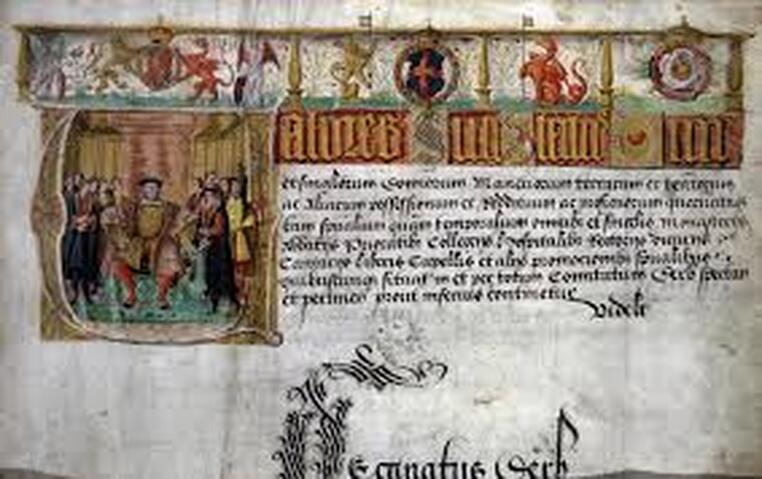|
|
 The Valor Ecclesiasticus
A Valuation of the Church in 1535
The Valor Ecclesiasticus
A Valuation of the Church in 1535
The Valor Ecclesiasticus, a valuation of the church, was a survey of the finances of the church in England, Wales and some parts of Ireland in 1535.
The Act of Supremacy ratified his position as the supreme head of the church and his authority to tax the clergy. Tax previously paid by clerics to the Pope redirected to him. It was decided to create an additional annual income for the crown tax of 10% on the revenue from all church lands and offices. To assess this tax a survey of all church property and revenues was undertaken.
In January 1535 Thomas Cromwell appointed commissioners to carry out the survey.
Clergymen, parish priests, heads of monasteries, colleges, hospitals and other institutions under church auspices were instructed to give testimony before local commissioners regarding their income, their lands, establishments owned and any other sources.
The commissioners examined documents and account books to provide a financial statement for each religious institution. The deadline for completing the work was set for 30 May 1535.
The commissioners, by and large local gentry, mayors, magistrates, bishops and sheriffs, undertook the task with some zeal and, by the summer of 1535, Cromwell had a detailed account of the property and wealth of the church.
Henry VIII,the Reign |
